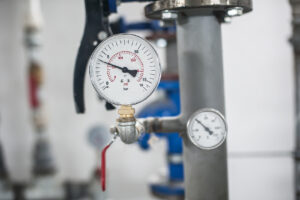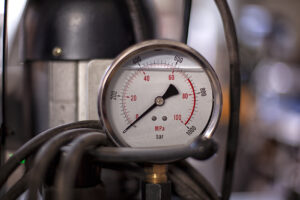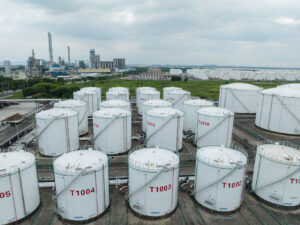Pressure gauges are essential instruments used across various industries to measure and monitor pressure levels. One of the critical components of a pressure gauge is its housing, which protects the internal mechanisms and ensures the gauge’s longevity and accuracy. This article delves into the different types of pressure gauge housings, the materials used, and their significance in industrial applications.
Types of Pressure Gauge Housings
Pressure gauge housings come in various designs, each suited for specific environments and applications. The main types include:
- Standard Housings: These are typically used in general-purpose applications where environmental conditions are not extreme. They offer basic protection against dust and mild mechanical impacts.
- Weatherproof Housings: Designed to withstand outdoor conditions, these housings protect the gauge from rain, wind, and other weather elements. They are ideal for applications in construction, agriculture, and outdoor machinery.
- Waterproof Housings: These housings are completely sealed to prevent water ingress, making them suitable for applications involving water or high humidity, such as in marine environments and water treatment plants.
- Explosion-Proof Housings: Used in hazardous environments where there is a risk of explosion, these housings are built to contain any sparks or flames that could ignite surrounding gases or vapors. They are essential in the oil and gas, chemical, and mining industries.
- Corrosion-Resistant Housings: Made from materials that resist corrosion, these housings are used in chemical processing, food and beverage production, and other industries where the gauge might be exposed to corrosive substances.
Materials Used in Pressure Gauge Housings
The choice of material for a pressure gauge housing depends on the application and the environment in which the gauge will be used. Common materials include:
- Stainless Steel: Known for its strength and corrosion resistance, stainless steel is widely used in industrial applications. It is ideal for harsh environments where the gauge might be exposed to chemicals, moisture, or extreme temperatures.
- Aluminum: Lightweight and corrosion-resistant, aluminum is used in applications where weight is a concern, such as in aerospace and automotive industries. It is also suitable for outdoor use due to its resistance to weather elements.
- Plastic: Materials like polycarbonate and ABS are used for housings in less demanding environments. Plastic housings are lightweight, cost-effective, and resistant to corrosion, but they may not offer the same level of durability as metal housings.
- Brass: Often used for low-pressure applications, brass offers good corrosion resistance and is relatively easy to machine. It is commonly used in plumbing, HVAC, and other general-purpose applications.
- Composite Materials: These are used for specialized applications where specific properties are required, such as high strength, low weight, or resistance to extreme temperatures. Composite housings can be tailored to meet unique application needs.
Importance of Pressure Gauge Housings
The housing of a pressure gauge plays a crucial role in protecting the internal components and ensuring accurate readings. Key functions of pressure gauge housings include:
- Protection: The primary role of the housing is to protect the gauge’s internal mechanisms from environmental factors such as dust, moisture, chemicals, and mechanical impacts. This protection ensures the longevity and reliability of the gauge.
- Durability: A well-designed housing enhances the durability of the pressure gauge, allowing it to withstand harsh conditions and extend its service life. This is particularly important in industrial applications where equipment is subjected to rigorous use.
- Safety: In hazardous environments, explosion-proof housings are essential for preventing sparks or flames from escaping the gauge and igniting surrounding gases or vapors. This is crucial for ensuring the safety of personnel and equipment.
- Accuracy: By shielding the internal components from environmental influences, the housing helps maintain the accuracy of the pressure gauge. Stable and accurate readings are vital for the proper functioning of industrial processes.
Pressure gauge housings are a vital component that significantly impacts the performance, durability, and safety of the gauge. Understanding the different types of housings and the materials used can help in selecting the right pressure gauge for specific applications. Whether dealing with harsh industrial environments, corrosive substances, or hazardous locations, choosing the appropriate housing ensures that the pressure gauge performs reliably and accurately, contributing to the overall efficiency and safety of operations.



